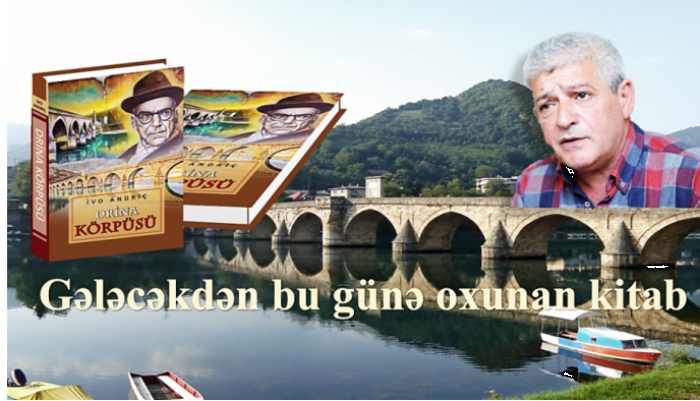
It is possible to analyze a historical work or a prose text about history in several ways - first of all, in terms of historical texture, philosophy of history, and also, mainly, the impact of the events that happened in that historical period on the future, the sadness and joy, hatred and tragedy of the future. from the "build-create" aspect. Literary criticism has for many years dealt with the issue of whether or not the writer is faithful to the historical reality in the works of fiction, and the implications of the work and the literary text in the near and distant future have been ignored. But... there are such historical novels, whose "leakage" into the future is very weak, it is just history, not fiction, i.e. it is false history (for this, a historical work must decide on the highest point of artistic, artistic conventionality...-!). Ivo Andrić's novel "The Bridge of the Drina" describes such a hot and extremely tense environment that you forget the history for a moment (that is, you forget that you are reading a historical work), the main thing in this novel is a moment of action for you: this action comes upon you , you imagine it as the waves that surround your head, the image, or that tense environment forces you to "build" the Ottoman palace from the now discarded stones of reality (it's misread, thrown aside-!)... The bridge is two collar, connects the two coasts, for the first time a world-wide work is done on the spiritual map of those areas: East and West unite, people get rid of the tragedies caused by floods, because the work is huge, it does not see the end, people get tired, they lose enthusiasm because they work without money, the person in charge of the construction they rebel against his rudeness and cruelty (corrupt...); a strange detail included in the artistic text increases the tension to the limit, nerves are strained, a man joins the workers and incites people against the construction with his song and... another worker who intervenes is crucified. The sound of the song does not stop even if it dies. That cruel leader was also summoned to Istanbul and exiled, and another person was sent instead. Fair and kind. Posted by Sokollu Mehmet Pasha. As a child, he was taken from here, trained in the royal palace, and held a position. It is impossible to imagine the bridge without it, as a child, maybe he sat on the bank of the river and looked into the distance, those views have never changed, no matter what changes. Views are never yours in this sense. If you change everything, spoil it, throw it somewhere, the views - never! You can change, you can become rich, you can become poor and be spoiled, but those views do not change. Sokollu Mehmet Pasha projects this historical novel into the future with those views. He says that there will be more terrible days ahead. The tragedies that befell the Muslim-Turkish population in those regions in the 20th century are not forgotten.
Körpü də bir mətndir, deyir ki, tarixi roman əslində gələcəyi oxumaq üçündür.
